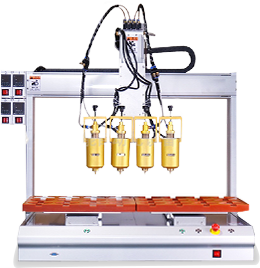

As the core basic parts of automation equipment, metal sleeve parts are made of high-strength metal materials such as alloy steel and stainless steel, and are formed by precision forging and CNC processing. The parts have a cylindrical structure, and the dimensions of the inner and outer walls are strictly controlled with precision. The surface is smooth and the hardness is high. With excellent wear resistance, corrosion resistance and stability, it undertakes key functions such as connection, positioning, guidance and protection in automation equipment, and is an important component to ensure the efficient and accurate operation of the equipment.
Product Features
1. High strength and high wear resistance
Using high-quality materials such as 42CrMo alloy steel and 304/316L stainless steel, after quenching, carburizing and other heat treatment processes, the hardness can reach HRC50-65, and the wear resistance is improved by more than 3 times. Under high load and strong friction conditions, it can still maintain good structural integrity, and the service life is extended to 2-3 times that of ordinary parts.
2. High-precision manufacturing process
Using a five-axis linkage CNC machining center, combined with laser cutting and grinding and polishing technology, the inner diameter accuracy of the sleeve is controlled at ±0.005mm, the cylindrical error is ≤0.002mm, and the surface roughness Ra≤0.2μm. Precise dimensional tolerances ensure perfect coordination with shafts, pins and other components, effectively reducing equipment operation noise and energy consumption.
3. Multifunctional design
According to different application scenarios, a variety of structural designs with internal threads, external threads, positioning grooves, oil holes, etc. are provided. Some sleeves have built-in self-lubricating coatings to reduce friction between components; the special sealing structure design can effectively prevent dust and liquid intrusion and improve the reliability of equipment operation.
4. Wide applicability
The product specifications are complete, with an outer diameter range of 10mm - 200mm, a wall thickness of 1mm - 15mm, and supports customized production. It is suitable for automated production lines in multiple industries such as automobile manufacturing, electronic appliances, and medical equipment, and has good compatibility with equipment of different brands. Some common specifications and parameters are as follows:
Type | Material | Outer diameter (mm) | Inner diameter (mm) | Wall thickness (mm) | Main application scenarios |
Guide sleeve | 42CrMo | 20 - 80 | 18 - 78 | 1 - 2 | Automated robot arm guidance |
Locate sleeve | 304 Stainless Steel | 30 - 100 | 28 - 98 | 1 - 3 | Precision assembly equipment positioning |
Threaded sleeve | alloy steel | 15 - 50 | 12 - 47 | 1 - 1.5 | Component fastening and connection |
 Headquarters tel.
Headquarters tel. E-mail.
E-mail.